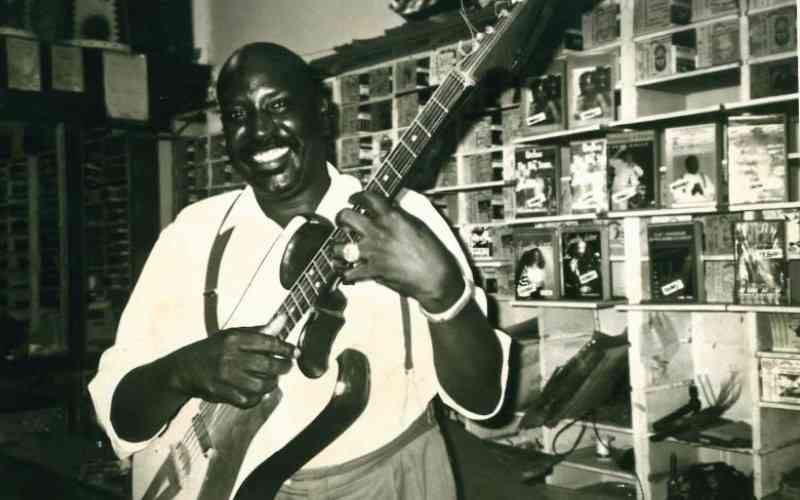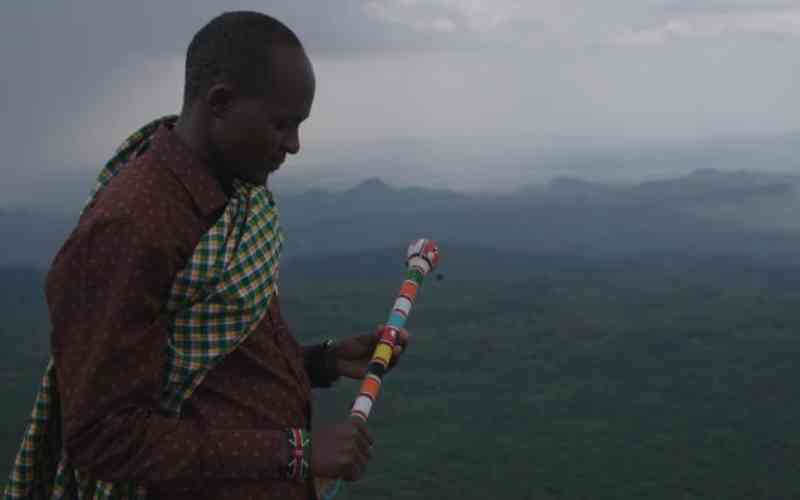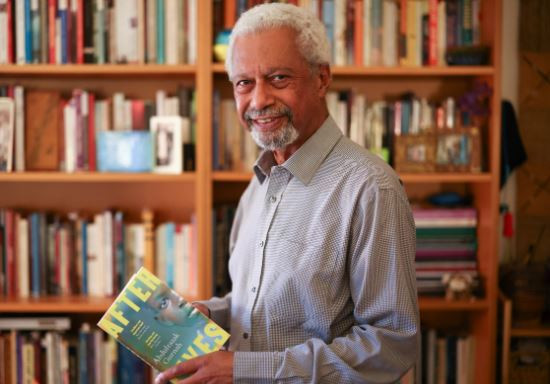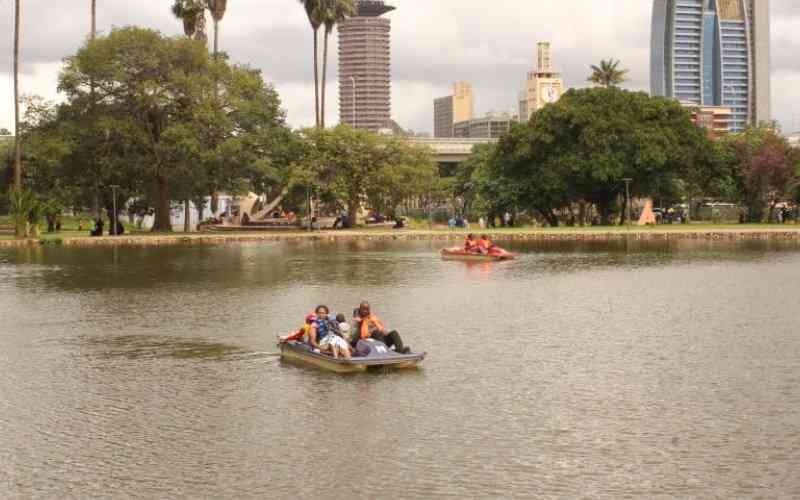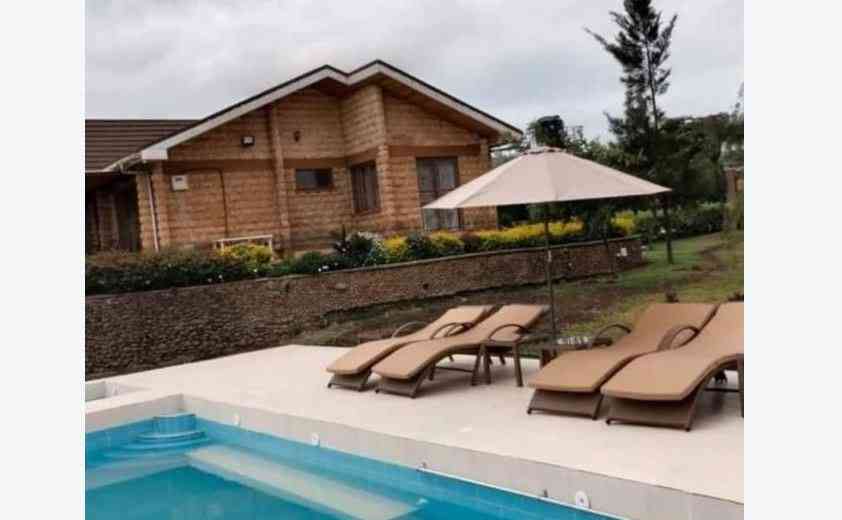
Ali gently steered the dhow out of the small jetty and into a small lagoon for what he had promised to be a 'wonderful sundowner'. The team of local and international journalists who were inspecting marine conservation projects in the area perhaps expected the dhow to dock at a nearby shore followed by a free flow of drinks while watching the sun sink into the horizon.
But this is Lamu and local customs dictate that alcohol be kept out of public view and save for some samosa offers, Ali did what his forefathers have done for centuries; set sail and let the wind do the rest. And how calming and therapeutic the sound of silence is! With the gentle waters of the lagoon hemmed in by the mangroves lapping the sides of the dhow, time in Lamu stops.
Lamu has changed little over the centuries. True, there are modern conveniences such as the motorised high-speed boats, the airport, a new port and some storey buildings. However, the old part of the town still spots weather-beaten structures that have stood the test of time with the seafront section forming part of the Unesco World Heritage Site.
We had flown to the seaside enclave on a grey Tuesday with the heavens pregnant with rain. The men and women at the meteorological department had been telling us about a positive Indian Ocean Dipole responsible for the El Nino phenomenon being witnessed in the country. Whatever that means, we were just about to find out the secrets of the ocean.
The weather dictated our movements for the few days we were in town. With our activities concentrated on the adjacent Pate Island, leaving the comforts of the hotel at 4am became normal, lest the tide conspired against our plans.
The early start had its glad tidings too. With the coastal temperatures soaring by mid-morning, calling it a day by noon was the norm. Whiling the rest of the day, and evenings, listening to endless tales from townsfolk became a worthwhile pastime. And tales abound in Lamu.
Perhaps you have heard the "horror" stories about Lamu. Tales were told about cats turning into genies if kicked. Of the felines talking back at you should you mistreat them. There were legends about mermaids roaming in the sea and looking to lure the unwary into their dark world. With no way of testing the veracity of the claims, 'watu wa bara' treated Lamu, and the larger coastal region, with trepidation.

And so, each evening, we would take our seats in the public square by the jetty in Shela, sipping Swahili tea and listening to the pulse of the oldest settlement in Kenya. I was happy to reacquaint myself with an old friend, Aswif, better known as 'Captain I Will be Back'.
He got the name after numerous efforts to get him to complete his schooling hit a brick wall. He had dropped out of school and every time his teacher or fellow students met him in Lamu town and asked him when he would get back to class, he would tell them, "don't worry, I will be back."
He never came back. Instead, Aswif immersed himself in Lamu's vibrant dhow transport business, even employing some of his former classmates. He is also one of the most affable characters in town and can hold his own against the older generation.
On this day, he was poking fun at a man who had the dream of marrying the daughter of former president Uhuru Kenyatta. Aswif laughed himself off as he saw the dejected expressions on the man's face upon learning about the impracticality of his fantasy. "Huyo ameenda (she is taken), Aswif told him. But hope keeps men alive.

On a nearby bench, another group of men were busy calculating the amount of money they would have made had Raila Odinga become president and fulfilled his pledge to give a monthly stipend of Sh6,000 to jobless Kenyans.
"Ningekuwa na laki moja na nusu (I would have earned Sh150,000)," he told his attentive listeners. The latter could not care and only stroked their dyed beards while gazing at the anchored boats swaying in the waves.
We had our tales too. Part of our team that never made it to the sundowner mentioned at the outset decided to retire to their hotel early but could barely find their way in Lamu's meandering and narrow streets. Jokingly, they told us how they had pegged their hopes of finding the hotel on a donkey that lay near the entrance all day but could no longer locate the beast of burden in their hour of need. "Punda aliondoka," they told us, eliciting bouts of laughter.
And so whatever takes you to Lamu, take the time to just laze around and hear one more tale from a settlement lost in time.

 The Standard Group Plc is a multi-media organization with investments in media platforms spanning newspaper print
operations, television, radio broadcasting, digital and online services. The Standard Group is recognized as a
leading multi-media house in Kenya with a key influence in matters of national and international interest.
The Standard Group Plc is a multi-media organization with investments in media platforms spanning newspaper print
operations, television, radio broadcasting, digital and online services. The Standard Group is recognized as a
leading multi-media house in Kenya with a key influence in matters of national and international interest.


